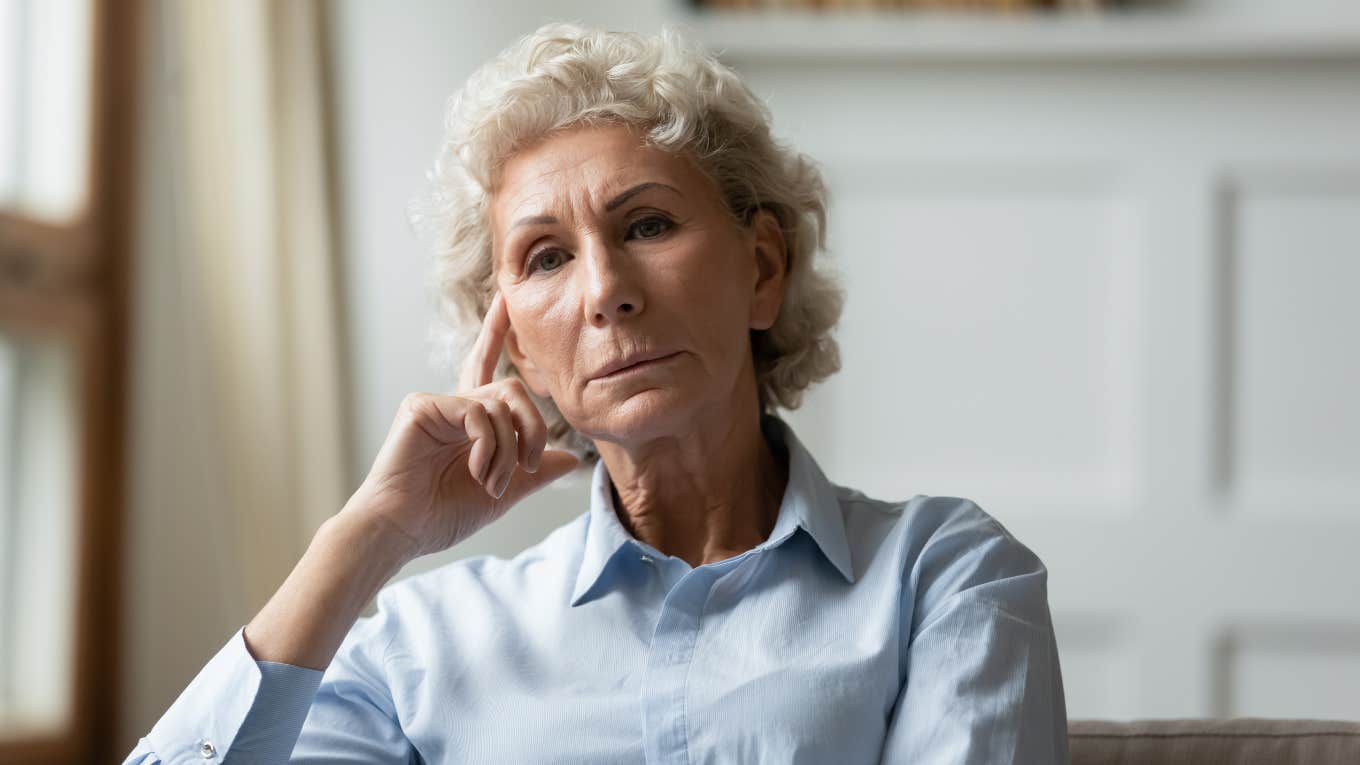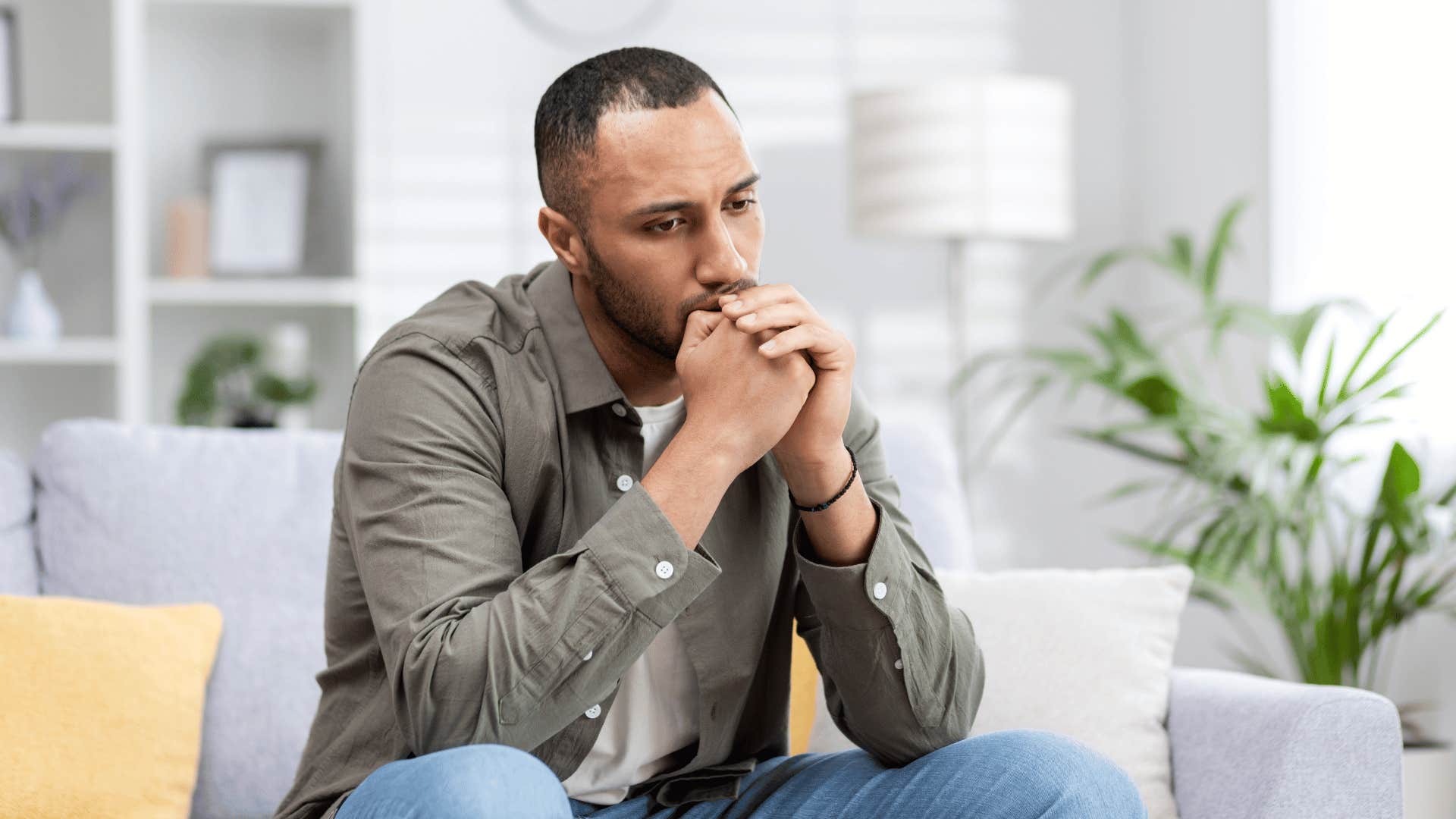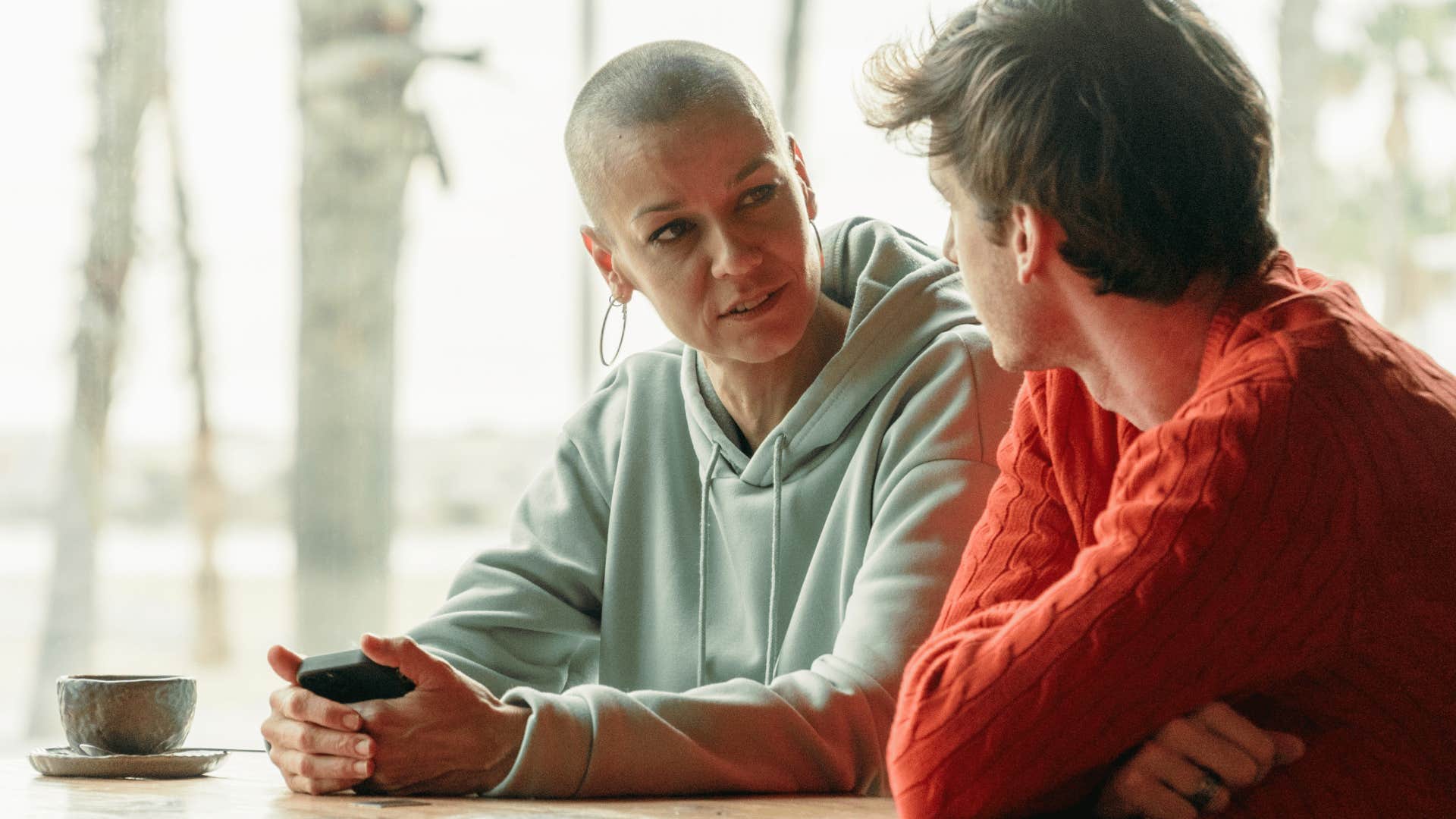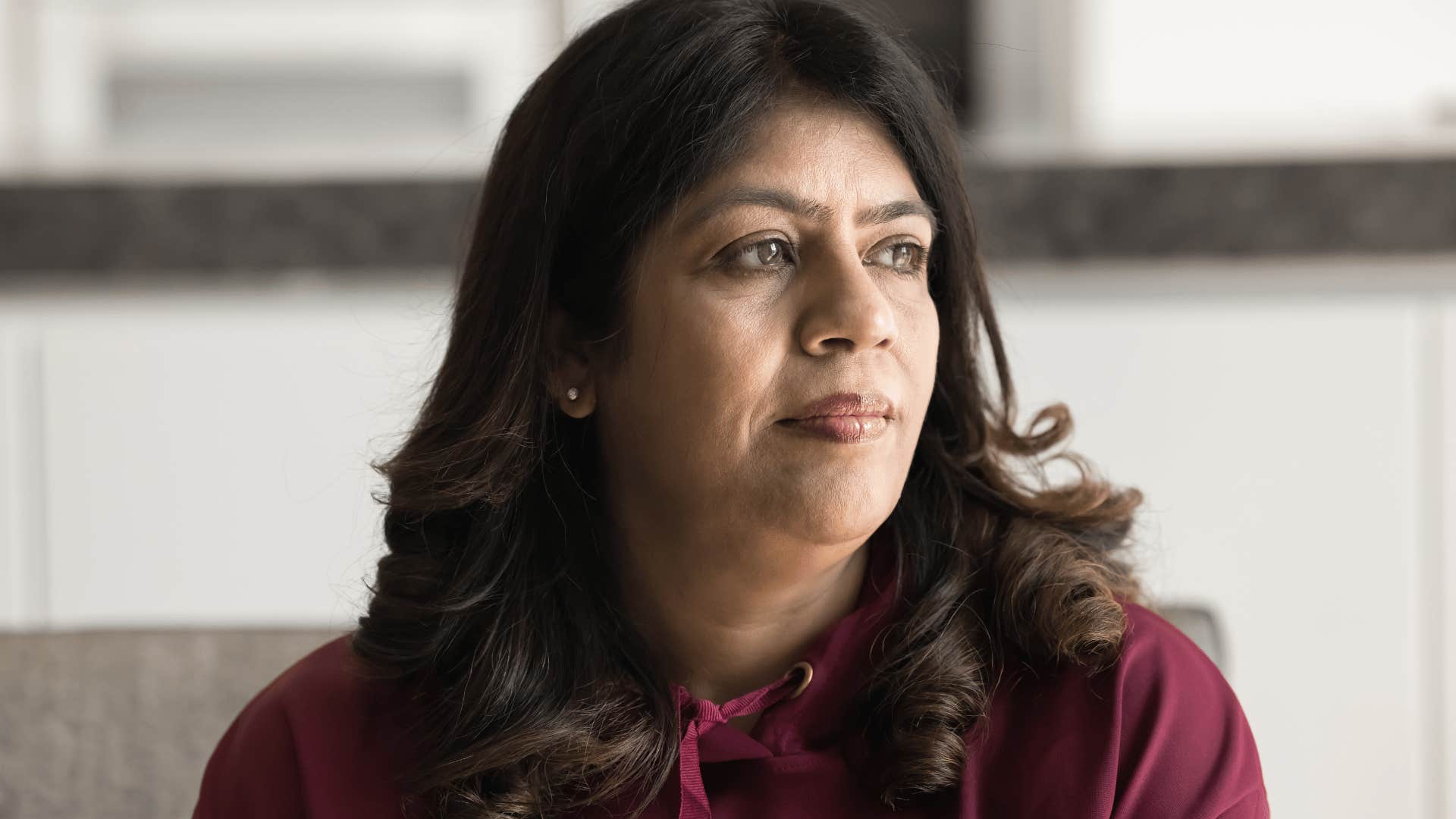People Who Lose Interest In Talking To Friends As They Get Older Usually Have These 11 Reasons
As we get older, the things we value in friendship can drastically change.
 fizkes | Shutterstock
fizkes | Shutterstock Friends are some of the most important people we'll have in our lives. They see us at our highs and are there to comfort us with open arms and a listening ear during our lows. There's nothing on this planet that can ever come close to platonic love because while we tend to prioritize romantic connections, the relationships we form and nurture with our friends are always more fulfilling.
However, as we get older, some of our priorities tend to shift, whether that means moving away and working a new job, starting a family, or life just getting in the way. All of these are reasons people who lose interest in talking to friends as they get older usually have. And when this happens, sometimes those friendships we once held close suddenly start to slip away. Most of the time, it isn't for any nefarious reasons; rather, we start to realize the kinds of things we value and don't value in a friend.
Here are 11 reasons people who lose interest in talking to friends as they get older usually have
1. They have different life priorities
 Ground Picture | Shutterstock
Ground Picture | Shutterstock
As we get older, our perspective on life tends to shift. As young adults, we may not have as many responsibilities as we go further into adulthood, meaning that we may have more time to spend with our friends.
However, there may come a point when life can just get more demanding, which becomes one of the reasons people who lose interest in talking to friends as they get older usually have. People may no longer have time for those late-night phone conversations or spontaneous hangouts.
Research from Frontiers in Psychology found that high-quality adult friendships that can provide social support and companionship can significantly improve a person's well-being and protect against mental health issues. But sometimes, even the most meaningful of friendships end up taking a backseat to the constant movement and change of life.
2. Their energy becomes limited
 TetianaKtv | Shutterstock
TetianaKtv | Shutterstock
Life has a way of truly knocking people down and draining them of their energy. An estimated 45% of adults admitted to experiencing the highest increase in mental health diagnosis in 2023 compared to 31% in 2019. Where some people may have been able to balance work, family obligations, spending time with friends, and making sure to pour love back into themselves, those days are few and far in-between.
Many people have chosen to simply sacrifice their friendships as a way to have more time for everything else in their lives, especially since adulthood just comes with a layered amount of exhaustion. A lot of individuals simply do not have the energy to keep in contact with their friends anymore or spend hours on a night out when they could just be decompressing alone.
3. They start valuing quality over quantity
 Dmytro Zinkevych | Shutterstock
Dmytro Zinkevych | Shutterstock
It might seem ideal to have a large friend group; that way, you always have someone to turn to and spend time with. While having a large friend group can seem exciting at first, it's always best to prefer quality over quantity.
Just because you have a lot of friends doesn't mean each and every one is a genuine person with whom you should be forming a platonic connection. And as we get older, many of us start to realize that there's so much more value in quality over quantity.
"While we may have a solid core of family members and close friends, many contacts we view as less important often fall by the wayside," explained psychologist Romeo Vitelli, PhD. "In fact, according to Laura Cartensen's Socioemotional Selectivity Theory, we may deliberately downsize our social networks to only a few close friends or family members as a way of simplifying our lives and preserving health and well-being in old age."
It's not uncommon for people to realize they'd rather prioritize a small group of friends instead of trying to appeal to a larger group, and there's nothing wrong with that.
4. They experience personal growth, which ends up creating distance
 Mariana_erato | Shutterstock
Mariana_erato | Shutterstock
One of the things that happens as we continue to find personal growth the older we get is that it can sometimes create an emotional distance between the friends you have. Personal growth is always a good thing, as described by psychology expert Stephen Joseph, PhD, who said, "By developing ourselves in this way, we become someone who can treat events in our lives as learning opportunities."
However, this distance isn't always marked by some drama or falling-out happening, but rather, the natural occurrence of life. Sometimes, friendships aren't meant to last forever, as much as we'd want them to, and some people are truly only meant to be in your life for a season.
5. The effort becomes one-sided
 Prostock-studio | Shutterstock
Prostock-studio | Shutterstock
One of the most glaring reasons people who lose interest in talking to friends as they get older usually have is a one-sided friendship. Because there's nothing worse than realizing that the friends you've had for quite some time are no longer putting effort into maintaining the friendship.
There could be a plethora of reasons why this ends up happening, but it's disheartening when you realize that you're the person constantly reaching out and trying to plan a moment to spend with friends who might not be as willing to put in the same amount of energy into you.
"No one should endure friendships that make them feel chronically lousy, even if those same friendships make others feel fine. We need to know ourselves, our needs, and our boundaries to make the right call for us," explained psychologist Marisa G. Franco, PhD.
"Next time you're in a one-sided friendship, I'd like you to ask yourself, do I have the capacity to give grace? By that, I mean, can you be at peace in a one-sided friendship, or does it trigger resentment, stress, and feelings of unworthiness in you? If it's the latter, you have your answer."
6. They have less tolerance for drama
 Branislav Nenin | Shutterstock
Branislav Nenin | Shutterstock
As we get older, we develop less of a tolerance for unnecessary drama and gossip from relationships in our lives that are no longer serving us. At one point, the constant gossip and emotional ups and downs felt like a constant in the friendships that a person may have had, but there comes a time when that all becomes quite exhausting, and because of that, an individual may start to lose interest in being a part of that.
"Just like a tornado, it has a strong pull, and once you're in it, it will swirl you around and spit you out. So, develop a plan of action. Know whether or not you get involved, situations have a way of working themselves out. If you meddle, it may just make things worse," encouraged psychotherapist Ilene S. Cohen, PhD, when it comes to handling drama.
7. Their free time is less accessible
 IRA_EVVA | Shutterstock
IRA_EVVA | Shutterstock
One of the most noticeable changes that happens as we get older is how much time can truly escape from us. As adulthood sets in, we realize that a lot of the flexibility we had early in life doesn't exist anymore. It doesn't mean that individuals don't want to spend time with their friends or see them, but it's become impossible to schedule a hangout because of how busy life has gotten.
The reality of time constraints can just make it incredibly hard to be as social as you once were. But when this happens, it's important to be transparent with your friends and let them know that even though life has become more demanding, it doesn't mean you're not thinking about them or wishing that you could drop everything to spend at least one minute with them.
8. They share conflicting values
 oneinchpunch | Shutterstock
oneinchpunch | Shutterstock
The older we get, the more set we become in our values and morals. When it comes to the relationships we have in our lives, sometimes we're no longer willing to compromise on what's important to us, especially if our friends don't feel the same way about a particular issue. As we mature, our views on things like politics, religion, and lifestyle choices become a direct reflection of our personality.
In some cases, conflicting values can be a direct reason why some people may feel inclined to distance themselves from certain friends. It's not because they don't care about the friendship or have a lack of care and love for them, but because they would rather surround themselves with people who have like-minded views on important issues.
9. Their friendships start to feel stagnant
 SG Shot | Shutterstock
SG Shot | Shutterstock
When friendships begin to feel stagnant and disconnected, it becomes one of the many reasons people who lose interest in talking to friends as they get older usually have. The dynamics of a friendship are always changing, especially as we get older.
The friendships we had early in life may have been cemented by certain shared experiences or being able to explore life together, but sometimes friendships can start to feel stagnant. Similar to personal growth, we may start to realize that while we're changing and evolving, our friends might just be staying the same.
They no longer seem to have a place in the version of life that we're trying to build. It's a natural part of life, no matter how saddening it can be. People drift apart, and you start to realize that the things bonding you together are no longer things that resonate with you.
10. They have an increased need for solitude
 insta_photos | Shutterstock
insta_photos | Shutterstock
It's no secret that our tolerance for spending time with others can quickly decrease the older we grow. With the stresses of everyday life, we start to appreciate and prioritize being able to spend time alone. This can mean that the energy we put into our friendships can become quite depleted and nonexistent because of how much we start to crave that solitude.
People become more selective with who they let into their space, and while this isn't necessarily a bad thing, it does mean that some friendships start to drift away. The older we get, the more we value peace and the ones in our lives that can bring that for us.
11. Their friendship values changed
 fizkes | Shutterstock
fizkes | Shutterstock
According to Rachael Benjamin, LCSW, "When you find yourself at a friendship impasse, like you've outgrown a friendship and need someone who reflects your values more, you need to first deeply consider what your own values are and how you may have shifted. In a sense, you have to have conversations with yourself or in therapy to get closer to your values."
We all have a specific definition and set of values that we appreciate in a friend. When we're younger, those values can be something as simple as liking the same music, movies, and TV shows or even enjoying going out to parties. However, as we get older, those values can shift in the same way that we start to shift our perspective on life and what's important to us.
Adulthood brings an entirely new layer to life, and some of those values that we enjoy in friendship may become deeper as we start to crave more. These new definitions of friendship mean that we're starting to sift through and distance ourselves from people who may not align with these values.
Nia Tipton is a staff writer with a bachelor's degree in creative writing and journalism who covers news and lifestyle topics that focus on psychology, relationships, and the human experience.

